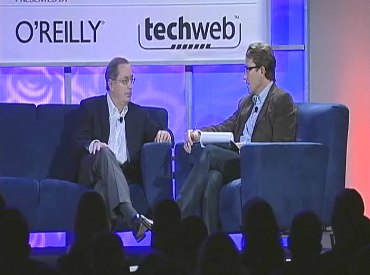Intel's Otellini: Strong second half; recovery coming in 2010

Intel CEO Paul Otellini took the stage at the Web 2.0 Summit today and kicked off the conversation with some good economic news: "We found bottom," he said, and it was discovered earlier than anyone might have thought.
"It's been a strong second half and it's not corporate," he said, "It's consumer. And it's China."
Otellini didn't sound like he was making projections about a turnaround - at least for the PC and server industries - in 2010. Instead, he spoke as if it was fact. The bottom line is that the machines being used in corporations today are old - on average, a desktop is five years old and a notebook is 4. Those machines won't run Windows 7 or the latest security software. And, more importantly, those machines are out of warranty and are costing more to keep than to replace.
CFOs understand that and are ready to make the investments in hardware, he said. In fact, IT is high on the spending lists because it's viewed as a tool of productivity. In the U.S., some of the corporate spending will stem from an understanding about the new efficiencies that are in place - especially in the data centers. Today's servers perform better, are more efficient and have greater capacity. Yes, budgets are still clamped down but that will change next year.
As for the growth in China, that partially stems from a stimulus package that penetrated its economy faster than the stimulus packages being launched in the U.S. The United States pace has slowed and Otellini said other countries are no longer waiting for the U.S. to take first steps in technology investments - they're moving forward on their own.
Otellini said he's also watching a few other topics in Washington, including tax deferral policies, corporate tax rates and R&D tax credits. He's also a fan of patent reform, "which is just a mess right now." Reform discussions seem to have stalled, he said, but he'd like to see the topic come back to center stage.
He wants to see the "trolling" taken out of patents and go back to a time when people created things and them used patents to protect then, instead of people trying to use them as a tool for extortion.